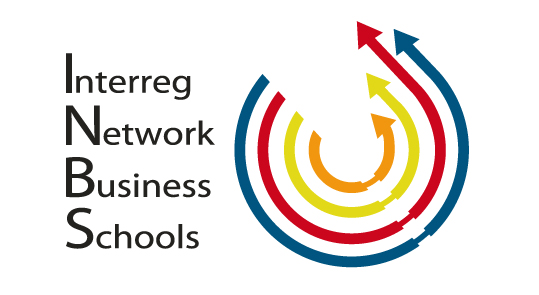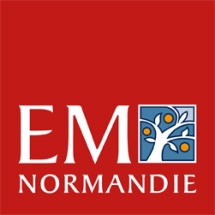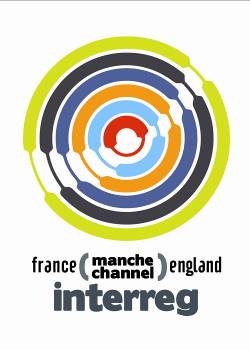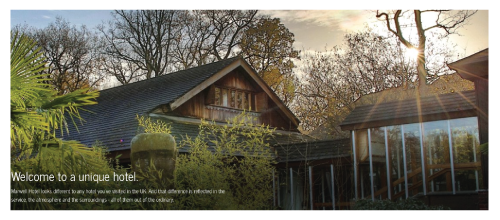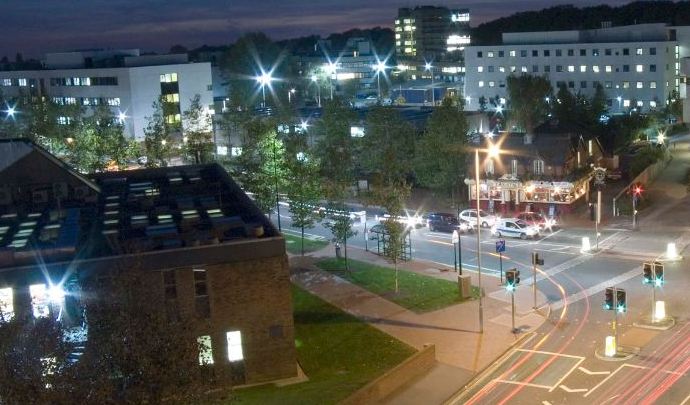On Edge: New Frontiers in Atlantic History
A two-day conference on landed and aquatic frontiers at the University of Southampton in summer 2016
-
On Edge: New Frontiers in Atlantic History
June 30, 2016 – July 1, 2016On Edge: New Frontiers in Atlantic History
Call for Papers
Dates: 30 June-1 July
Location: University of Southampton, United Kingdom
In the early modern world, no less than is true today, borders caused anxiety. A range of actors, from authorities to ordinary men and women, policed and contested boundaries; held them firm and flouted them entirely; fought over them and forged networks that transcended them. Boundaries were meant to establish sovereignty and political control, assert claims to natural resources and inhabitants’ loyalty, establish (closed) zones of economic activity, and in myriad ways determine who was in and who was out. The problem was that, however they were drawn, the lines were continually appearing, blurring and disappearing, particularly in places beyond the direct military and administrative oversight of European imperial authorities. Two distinct and usually separate lines of scholarship examine spaces of border contest: inland ‘frontier’ studies and maritime history. This conference invites participants to bridge the landed and aquatic frontiers of borderlands and maritime history to investigate in a broadly comparative framework how early modern actors defined, defied, and took advantage of borders, be they on land or on water. Through broadly comparative papers and revealing case studies this conference provides a forum to explore topics including, but not limited to, port cities, divided, middle, and Native grounds, saltwater frontiers, riverine trade, migration, diaspora, epistemology, and settler colonialism.
The organisers (Rachel Herrmann, University of Southampton, and Jessica Roney, Temple University) welcome suggestions for innovative paper formats and sessions. Some funding is available to offset the cost of lodging. Interested participants should send a 250-word paper abstract and a short CV to Rachel Herrmann (R.B.Herrmann@soton.ac.uk) by 29 February, 2016. Participants will be notified of acceptance in March.
Stardust Workshop
The 2nd Global Virtual Workshop will address the topics of asteroids and space debris with a focus on the technical aspects of these themes. The workshop is one of a series of events organised by the Stardust training and research network and this event is the second global virtual workshop to be held. The format of these workshops allows people to attend in-person or virtually via a teleconference connection.
-
Stardust Global Virtual Workshop II
January 19, 2016 – January 22, 2016About the Workshop
The 2nd Global Virtual Workshop will address the topics of asteroids and space debris with a focus on the technical aspect of these themes. The workshop is one of a series of events organised by the Stardust training and research network and it is the second of the virtual workshops. This format provides attendees with the opportunity to participate in-person, or virtually via a teleconference connection. To connect to the workshop virtually, only an internet browser will be required.
The University of Southampton is hosting the 2nd Global Virtual Workshop and has been engaged in space debris and near Earth object research for more than two decades. Modelling the space debris environment and identifying suitable mitigation strategies to reduce the space debris population are key areas of interest for the Astronautics Research Group, with respect to space debris. Near Earth object research addresses the impact hazard, its associated consequences as well as how to protect the population on Earth.
We would like to invite anyone wishing to present at this workshop to upload a two page abstract for review. Please see the 'Call for Contributions' page for more information.
PLEASE NOTE THAT DUE TO TECHNICAL REASONS THE ABSTRACT DEADLINE HAS BEEN EXTENDED UNTIL THE 27TH OF NOVEMBER.
About Stardust
Stardust is a unique training and research network devoted to developing and mastering techniques for asteroid and space debris monitoring, removal/deflection and exploitation.
- Stardust is training the next generation of engineers, scientists and decision-makers to protect our planet, ensure the security of our space assets, and turn the threat represented by asteroids and space debris into an opportunity.
- Stardust will push the boundaries of space research through innovative ideas and visionary concepts.
- Stardust will integrate multiple disciplines, from robotics, to applied mathematics, from computational intelligence to astrodynamics, to find practical and effective solutions to the asteroid and space debris issues.

About Southampton and the University
Southampton has a population of 250,000 and is located on the UK’s south coast. It is a diverse city with a big industrial port for containers and cruise ships and home to many sailing enthusiasts. The New Forest national park is located nearby and the Isle of Wight may be reached via a short ferry ride. The city itself offers many parks (with a public 5k run every Saturday morning), shopping and dining opportunities and of course traditional English pubs.
Southampton on WikipediaA short video introducing Southampton may be viewed at this link:
Southampton Introductory VideoThe workshop will be hosted at the University of Southampton. The University is a global institution ranked in the top 1% worldwide for research and education, but with roots in the local community. It is a founding member of the prestigious Russell Group of research intensive universities, with research in engineering in particular being ranked top in the UK (by power).
University of Southampton on WikipediaThe location of the University is shown here:
Google Maps of University.A printable map of the university can be accessed here:
Uni Campus Map as PDF
How to get to University of Southampton
The University has its own webpage describing the easiest way to get to the University
Directions to the University and maps can be found here. Airline FlyBe operates services between Southampton and cities in the UK and Europe, with more comprehensive services available through airlines operating via London Heathrow and London Gatwick, which can be reached by National Express bus services (to and from the University) or by rail from Southampton Airport Parkway or Central stations.
In any case, flight options can be explored on Skyscanner.com or Google Flights
Southampton Airport via FlyBe
FlyBe has a direct service operating between Southampton and Amsterdam (Schiphol), which can provide a convenient connection for international flights. Southampton Airport is situated close to the city and is served by the Uni-link bus service, which operates every 15 min (or so) with direct connections to many locations in the city (University, hotels, city centre). The route from the airport is U1C and it departs directly in front of the airport. Tickets for the bus may be purchased from the driver at a cost of £2. Alternatively, a rental car may be picked up at Southampton Airport.Southampton via London Gatwick Airport and train
London Gatwick is a major international airport that offers connections to many locations in Europe and the world. There is a regular train connection from Gatwick to Southampton central station that runs at least hourly. The average journey time is 2 hours. Occasionally, it is possible to book a direct train. Otherwise, one train change will be required at most. Train tickets may be purchased and connections may be checked at (typical cost is £25 one way):
Trainline WebpageGetting from Gatwick to Southampton with a rental car is also possible. The route is shown here.
Southampton via London Heathrow Airport and bus
London Heathrow is the major airport in the region. The bus company National Express offers frequent services between Southampton University (Southampton city centre is also possible) and Heathrow Airport. The connection takes approximately 2 hours and is direct. Tickets, which should be purchased in advance, can be obtained via the National Express webpage: here (typical cost is £25 one way).Again, the option to take a rental car from Heathrow to Southampton is possible. The route is shown here.
British Postgraduate Philosophy Association Conference
The BPPA Annual Conference is an annual philosophy conference run by and for postgraduate students in the UK, as well as the occasional keen traveller from foreign parts.
Spread over a weekend, it aims at philosophical rigour but seeks also to leaven the deep-furrowed ponderings with social frolicking and gambolling. Typically, the BPPA Conference has 12-16 postgraduate speakers, plus a big-name keynote speaker from the host university. The atmosphere is always very friendly and helpful, and the conference is a lot of fun.
-
British Postgraduate Philosophy Association Conference
June 23, 2015 – June 25, 2015
Cannibalism in the Early Modern Atlantic
A two-day conference on cannibalism at the University of Southampton, seeking to bridge disciplinary gaps between anthropology, archaeology, history, and literature.
-
Cannibalism in the Early Modern Atlantic
June 15, 2015 – June 16, 2015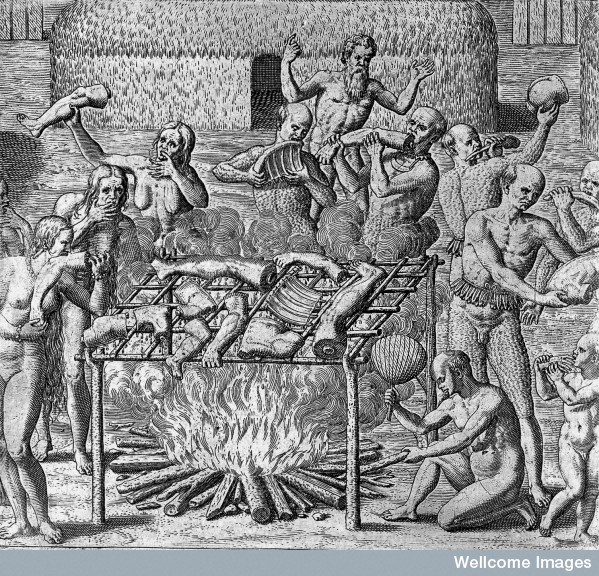
Call For Papers: Cannibalism in the Early Modern Atlantic
Location: The University of Southampton, Southampton, UK
Date: 15-16 June 2015
Deadline: 15 January 2015
On early modern voyages, people ate to survive. They fried, roasted, and stewed turtles; they netted fish—including sharks; and they gathered shellfish. During dire moments they sampled penguins and seals. And in even more extreme circumstances, they consumed each other. Last May archaeologists at the Jamestown Rediscovery Project excavation in Virginia unearthed bones that, for the first time, provide physical evidence suggesting that early American colonists ate each other during the Starving Time of 1609-10. Historians have long acknowledged documents detailing the events of that winter, but public interest in the new discovery testifies to the enduring power of cannibalism stories. Such tales, however, tend to deteriorate into debates over whether or not cannibalism occurred, or grisly anecdotes that elide a larger picture of the past. This conference asks participants to think broadly about what occurrences of cannibalism reveal about food history, Atlantic history, and maritime history. Questions that persist include: How did fears about cannibalism shape Europeans’ quest for food? How did early modern actors reconcile medicinal cannibalism with worries about anthropophagy? How did cannibalism tales influence exchanges of food between Europeans, Native Americans, and Africans? How did the daily concerns of maritime travel result in occurrences of famine and man-eating? And how does cannibalism challenge the Atlantic World paradigm?
This two-day conference will take place at the University of Southampton from 15-16 June, 2015. It seeks to bridge disciplinary gaps between (but not limited to) anthropology, archaeology, history, and literature. Dr. William M. Kelso (Hon. CBE, FSA), Director of Archaeological Research and Interpretation at the Preservation Virginia Jamestown Rediscovery Project, will give the keynote address. It is expected that presenters will speak for twenty minutes. Thanks to the generous assistance of the Wellcome Trust, some funding is available to assist with food and lodging costs for conference presenters. Selected papers will appear as an edited volume under contract with the University of Arkansas Press. A 250-word proposal and short CV (of no longer than three pages) should be submitted on this website (via the Call for Papers link) by 15 January 2015. Questions should be directed to Dr. Rachel Herrmann (R.B.Herrmann@soton.ac.uk).
MOVIC & RASD 2016
Motion and Vibration Conference and Recent Advances in Structural Dynamics conference hosted at the University of Southampton in 2016.
-
MOVIC & RASD 2016
July 3, 2016 – July 6, 2016Registration
Registration will be available between 17:00 and 19:00 on Sunday 3 July and between 08:00 and 10:00 on Monday 4 July in Building 40 (Garden Court). Please use the stairs at the back of the building and follow the signs to the registration desk.
Final Programme
Update: The final programme is now available to view by clicking here.
Joining Instructions
Information Regarding the Technical Sessions
Presenters of Contributed Papers
Each oral presentation is allocated 15 minutes, subdivided as follows:- 12 minutes for presentation (including conclusions)
- 3 minutes for questions and moving to the next presenter (to include changing the presentation and for the chair to announce the new presenter)
Each room will have a data projector and a computer running Windows 10, with Microsoft Powerpoint 2016 and Adobe Reader DC installed. Presentations should be on a USB memory stick. Presenters are asked to upload their presentation before the sessions starts and to meet the session chair in the room at least 10 minutes before the session is due to begin. Presenters can load their presentations at the information desk in Building 40 (Garden Court) or directly onto the computer in the room in which they will be presenting at any time during a break before the presentation. If a presenter would prefer to use their own laptop, VGA, HDMI and mini display port connections will be provided. Please ensure that the laptop is tested with the AV equipment during the break before the start of the session.Information for Session Chairs
15 minutes has been timetabled for each oral presentation in the parallel sessions: 12 minutes plus 3 minutes for questions and changeover. Please adhere strictly to these time limits. A student helper will be present to provide support for the AV equipment.Poster Presenters
The poster session will take place between 12:30 and 14:00 in Building 40 (Garden Court). The display boards are A1 portrait format (59.4 x 84.1 cm) and there is no specific template for the format of the posters. Please be aware there is no on-site printing facility and each presenter is expected to bring their printed poster to the session. The poster should be affixed to the display board before the start of the session with the adhesive strips provided at each stand. The presenter is kindly asked to have a short lunch and remain next to their poster.Registration
To register for the conference please click here. You will be need to log into your conference account, specify the registration type, and specify if you will present more than one paper. Please leave the Fee Code box blank, specify any dietary requrements or access requirements and then click 'Register' to proceed to the payment screen.
Fees
Full Early Bird Registration £450 Full Late Registration £550 Student Early Bird Registration £300 Student Late Registration £350 Additional Paper Fee £50 Registration will include the book of abstracts, the proceedings on a pen drive, a unilink bus pass for the duration of the conference, light refreshments, lunches, an evening BBQ and the conference dinner at Beaulieu National Motor Museum.
Objectives of the Conference
The conference aims to bring together researchers and practising engineers from different branches of engineering to discuss recent advances in theoretical and experimental techniques for solving problems in control, structural dynamics and dynamical systems.Who Should Attend
Research workers and engineers involved in any area of motion and vibration control, structural dynamics and dynamical systems.Conference Themes
Papers are invited in any area of vibration control and structural dynamics.MOVIC RASD Vehicle Dynamics and Control Active vibration control and smart structures Robot Dynamics and Control Analytical methods Control of Civil Infrastructures Biomechanics and Human structure interaction Model-Driven Systems Development Civil Engineering Structures Smart Structures and Control Energy methods Smart Sensors and Sensor Network Experimental techniques Control of Micro and Nano Structures Fluid- structure interaction Structural Acoustics and Noise Control Impulse loading and impact dynamics Energy Management and Eco Systems Modal analysis and structural modification Energy Harvesting Nonlinear vibrations Control of Fluid/Structure Interaction Numerical methods Damage Detection and Structural Health Monitoring Railway induced vibration Dynamics and Control of Multibody Systems Stochastic dynamics and random vibrations Intelligent Transport Systems Structural health monitoring Active Safety Systems System identification and inverse problems Control Technology for Tele-Operation Systems Uncertain dynamical systems Human-Machine Interface Vehicle dynamics System Identification and Modeling Vibro-acoustics Control Theory Wind Engineering Control Devices Sensors and Actuators Active Safety Systems Organising Committee
N. S. Ferguson, University of Southampton, UK (Chair) E. Rustighi, University of Southampton, UK (Chair) E. Bonisoli, Politecnico di Torino, Italy M. J. Brennan, Universidade Estadual Paulista, Brazil P. Forte, University of Pisa, Italy M. Ghandchi Tehrani, University of Southampton, UK M. Hirata, Utsunomiya University, Japan B. R. Mace, University of Auckland, New Zealand J. M. Muggleton, University of Southampton, UK K. Nakano, University of Tokyo, Japan A. R. Plummer, University of Bath, UK P. Rapisarda, University of Southampton, UK K. Sweitzer, Booz Allen Hamilton, USA J. Tang, University of Connecticut, USA D. J. Thompson, University of Southampton, UK L. N. Virgin, Duke University, USA T. P. Waters, University of Southampton, UK C. Zang, Nanjing University of Aeronautics and Astronautics, China Z. Zhang, Shanghai Jiao Tong University, China Journal of Physics: Conference Series
The proceedings of the conference will be published in Journal of Physics: Conference Series.
The benefits include:- open access publication, all articles are free to read and download in perpetuity
- abstracting and indexing in ISI Web of Science (Conference Proceedings Citation Index), Scopus, EI Compendex, among others
- creation of hyperlinked references and tracking of future citations
Venue
University of Southampton
Highfield Campus
Southampton
SO17 1BJ
UK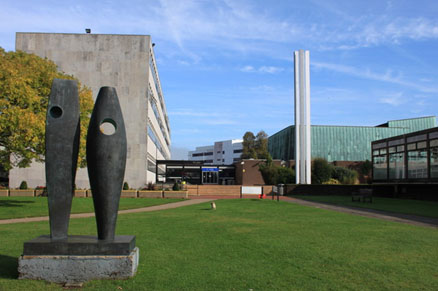
Useful links:
University of Southampton Highfield Campus Information
Southampton City and Region
Conference Secretariat
Abstracts and questions relating to the Conference should be addressed to:
MoViC2016 & RASD2016 Secretariat
ISVR, University of Southampton
Highfield, Southampton, S017 1BJ, UK
Telephone: +44 (0)23 8059 2294
Fax: +44 (0)23 8059 3190
E- mail: movicrasd2016@soton.ac.uk
Website: http://go.soton.ac.uk/movicrasd2016Call for papers
Abstract submission is now closed.
Full papers in PDF format will be required by
All papers will be peer reviewed. Papers presented at the conference will be published in the in the Journal of Physics: Conference Series and onto pen drives, which will be available at the conference.29 January 201619 February 2016.Author Guidelines
- How to submit an abstract on the OCS system
- Journal of Physics templates and guidelines for papers
- How to upload a paper on the OCS system
- How to upload a revised paper on the OCS system
Plenary Keynote Lectures
There will be 5 plenary keynote lectures:
- Prof Roger Goodall, Loghborough University, UK
- Prof Takeshi Mizuno, Saitama University, Japan
- Prof Kevin Murphy, University of Louisville, USA
- Prof David Wagg, University of Sheffield, UK
- Prof Kon-Well Wang, University of Michigan, USA
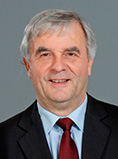
Professor Roger Goodall
Loughborough University, UK
Professor of Control Systems Engineering
MA, PhD, FREng, FIMechE, FIETPlenary Session Title: Motion and vibration control for railway vehicles
Abstract:Active control of the dynamic characteristics of railway vehicles provides important possibilities for enhanced performance, and is applicable to a variety of vehicle systems: to the secondary suspension for improving ride quality, to the running gear on the bogies for enhanced dynamic characteristics, also to the pantographs which are used to collect electrical power from the overhead wires. The paper will provide an overview of the opportunities and requirements for each application, illustrate them with examples and identify key research challenges. It will conclude with a vision for the design of future railway vehicles and their operation if the full range of motion and vibration control opportunities are exploited.
Biography: Roger Goodall spent 14 years in industrial research before he took up an academic position at Loughborough University, where he is currently Professor of Control Systems Engineering. He is also a part-time professor in the Institute of Railway Research at the University of Huddersfield. His research is concerned with a variety of practical applications of advanced control, usually for high performance electro-mechanical systems. Specific projects are concerned with active railway vehicle suspensions, advanced sensor systems for aircraft flight control systems, and advanced concepts for control technology in general. His projects are characterised by strong industrial collaboration, having worked with companies such as Alstom, BAE Systems, Bombardier Transportation, and this is supported by excellent links with universities and research organizations worldwide.
He has served in a variety of external roles such as member of the Board of the International Association for Vehicle System Dynamics (IAVSD), Vice-President of the International Federation of Automatic Control (IFAC), chairman of the IMechE Railway Division, inaugural Chair of the Technical Committee on Mechatronic Systems for IFAC and Chairman of the UK Automatic Control Council (UKACC). For services to IFAC he has received the Federation’s Outstanding Service Award, and has also been elected as an IFAC Advisor. He has been a Fellow of both the Institution of Electrical Engineers and the Institution of Mechanical Engineers in the UK for a number of years, and has received a number of awards from both these and other institutions for his published work. He was elected a Fellow of the Royal Academy of Engineering in 2007.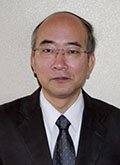
Professor Takeshi Mizuno
Saitama University, Japan
Professor, Department Chair of Mechanical EngineeringPlenary Session Title: Recent advances in magnetic suspension technology
Abstract:
The suspension of an object with no visible means is still fascinating to most people. Magnetic suspension utilizes magnetic force for achieving such suspension. There is no contact between stator and object (floator). No mechanical friction and wear is expected in operation even without lubrication. This advantage has already given rise to a lot of industrial applications such as Maglev system, and active magnetic bearing (AMB) for complete contact-free suspension of rotating object. The most successful application is turbo machinery such as turbo-molecular pump.
Researches and developments on magnetic suspension have been actively pursued for several decades and some people may consider this technology to be rather mature now. However, to fully utilize this unique technology and to increase industrial applications, technical advances are still important.
This report presents several recent innovations and advances in magnetic suspension technology. An overview of technological fundamentals is presented first, which is followed by reports on the recent works of the author.
Biography: Takeshi Mizuno is a Professor and the Department Chair of Mechanical Engineering, Saitama University in Saitama, Japan. He received the B.E., M.E., and D.E. degrees from the University of Tokyo in 1978, 1980 and 1985, respectively. He was a Research Associate at the Institute of Industrial Science, the University of Tokyo from 1980 to 1985, and an Assistant Professor at the Polytech University from 1985 to 1988. Since 1988, he has been with the Department of Mechanical Engineering, Saitama University. He stayed at the Swiss Federal Institute of Technology (ETH) Zurich as a gust professor from November in 1990 to October in 1991.
His research interests include control engineering, mechatronics, magnetic and electrostatic suspension, magnetic bearing, active vibration control, vibration isolation, dynamic vibration absorber, micromanipulation and micro-assembly systems, and instruments for measuring mass and force.
He has received Outstanding Paper Award from the Society of Instrument and Control Engineers (SICE), 1998 and 2006, Outstanding Paper Award from the Japan Society of Mechanical Engineers (JSME), 2004 and 2012, Best Paper Award from the Japan Society of Applied Electromagnetics and Mechanics (JSAEM), 2006 and 2014, The 2008 Annual Dynamics, Measurement and Control Division Award for Distinguished Contributions to the Advancement of Division Activities, 2009, The 2010 Annual Dynamics, Measurement and Control Division Award for International Activity, 2011, and AEM Chairperson-ship Award from JSAEM, 2012.
He organized the Sixth International Conference on Motion and Vibration Control (6th MOVIC), the Eleventh International Symposium on Magnetic Bearings (ISMB-11) and the Twentieth Magnetodynamics (MAGDA) Conference in Pacific Asia as a Chairperson.
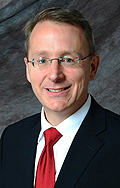
Professor Kevin Murphy
University of Louisville, USA
Professor and Chairman, Department of Mechanical EngineeringBiography: Kevin Murphy is a professor and department chairman of Mechanical Engineering at the University of Louisville. He earned his bachelors and masters degree from the Department of Mechanical Engineering and Applied Mechanics at the University of Michigan. He then earned a Ph.D. from Duke University. He has been a professor at the University of Nebraska and the University of Connecticut, prior to moving to Louisville in 2013.
His research has primarily been in nonlinear dynamics, vibrations and stability of structural systems. Applications include manufacturing problems, aircraft structures, micro- electromechanical systems - as well as some less traditional areas, including tree vibrations (botany) and emergent scaling in materials. This work has been funded the by National Science Foundation, the Office of Naval Research, the U.S. Air Force, and NASA. Much of his current work has focused around structural health monitoring, where he and his collaborators marry structural models with experimental data and probabilistic methods to arrive at damage parameter estimates. He has published widely in these areas and has recently co-authored book entitled: Modeling and Estimation of Damage in Structures.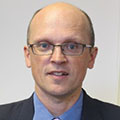
Professor David Wagg
University of Sheffield
BEng, PhD, CEng, FIMechE Professor of Nonlinear Dynamics
Departmental Director of Research and InnovationPlenary Session Title: Reducing vibrations in structures using structural control
Abstract:
Reducing vibrations in structures using structural control In this presentation three recent developments in structural dynamics which can be used to reduce vibrations will be discussed. All three have the objective of reducing unwanted vibrations in structures. The first is the “tuned-inerter-damper” concept that is analogous to a tuned-mass-damper, but replaces the mass with an inerter. The inerter is an acceleration driven device that has been developed relatively recently. It’s main application area has been the automotive industry, but a much wider variety of applications are currently being investigated. We will present experimental and theoretical results showing how the inerter behaviour can be exploited to reduce structural vibrations. The potential advantages of the tuned-inerter-damper will also be discussed. The second topic discussed in this talk is the combination of active and semi-active control. In this scenario, the active actuator is used to help “assist” the semi-active actuator. The control is implemented using a immersion and invariance control technique, and has applications to railway pantograph systems. The third and final example we will discuss is the idea of using nonlinear spring stiffness to create a lightweight vibration isolator. The nonlinear spring is formed by combining a linear spring with a bistable composite plate. This application is used to increase the isolation effect that can be obtained using just linear stiffnss by creating a nonlinear stiffness function. The concept is sometimes called the “high static low dynamic stiffness” spring. We present numerical and experimental results which show how the transmissibility of the system is improved by designing the nonlinear spring as part of an isolation mount.
Biography: David Wagg was awarded his BEng degree and PhD (at the Centre for Nonlinear Dynamics) from University College London. From 1998 until 2000 he was a postdoctoral researcher at the Earthquake Engineering Research Centre at the University of Bristol.
In 2000 he was appointed as a Lecturer in the Department of Mechanical Engineering at the University of Bristol and he became Professor there in 2008. From 2004-2009 he was an EPSRC Advanced Research Fellow. In July 2013 he moved to the University of Sheffield to take up a chair in Nonlinear Dynamics.
Professor Wagg's research is focused on understanding and controlling nonlinear structural dynamics. He is currently PI for the £4.2M EPSRC funded Engineering Nonlinearity Programme Grant, which is a consortium of five universities and eight industrial partners. He has published extensively in the topic area including the book Nonlinear Vibration with Control (Springer, 2009), which is one of the first to describe using nonlinear modelling and control for structural dynamics.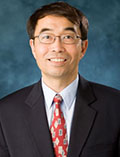
Professor Kon-Well Wang
Stephen P. Timoshenko Professor and Tim Manganello/BorgWarner Department Chair
Department of Mechanical Engineering
University of Michigan
Ann Arbor, MI
U. S. A.Plenary Session Title: From Muscles to Plants – Nature-Inspired Adaptive Metastructures for Structural Dynamics Enhancement
Abstract:
During the past few decades, due to the advances in materials, electronics, and system integration technologies, structural dynamics and controls researchers in various engineering disciplines (e.g., aerospace, civil, mechanical) have been investigating the feasibility of creating adaptive structures. The vision is to develop multifunctional structural systems that have various embedded and distributed autonomous functionalities, such as shape reconfiguration and morphing, materials and mechanical property variations, energy harvesting, vibration and stability controls, and health monitoring and healing. From a structural system point of view, one of the major challenges is on how to best synthesize the cross-field and local-global coupling characteristics of the various adaptive materials and elements to optimize the overall structure performance. It has been recognized that to achieve significant new advances in adaptive structures, researchers have to conduct even more cross talks among various fields and disciplines. In recent years, interesting approaches have been explored to develop mechanical metastructures based on synergistic modular architectures, often observed in nature, such as in biological or atomistic systems. This presentation will discuss some of the recent interdisciplinary research efforts in synthesizing nature-inspired adaptive metastructures for structural dynamics enhancement and applications.
Biography: Kon-Well Wang is the Stephen P. Timoshenko Professor and Tim Manganello/BorgWarner Department Chair of Mechanical Engineering at the University of Michigan, in Ann Arbor, MI, U.S.A. He received his Ph.D. degree from the University of California at Berkeley in 1985, worked at the General Motors Research Labs as a Senior Research Engineer, and started his academic career at the Pennsylvania State University in 1988. During his Penn State years, Professor Wang has served as the William E. Diefenderfer Chaired Professor in Mechanical Engineering, Director of the Structural Dynamics and Controls Lab, Associate Director of the Vertical Lift Research Center of Excellence, and Group Leader for the Center for Acoustics and Vibration. Dr. Wang joined the University of Michigan in 2008.
Professor Wang’s main technical interests are in adaptive structural systems and structural dynamics & controls. He has received various recognitions for his accomplishments; such as the SPIE Smart Structures and Materials Lifetime Achievement Award, the ASME Adaptive Structures and Materials Systems Award, the ASME N.O. Myklestad Award, the ASME Rudolf Kalman Award, the ASME Adaptive Structures and Material Systems Best Paper Award, the NASA Tech Brief Award, the SAE Ralph Teetor Award, the PSES Premier Research Award, and the PSES Outstanding Teaching Award. Professor Wang is a Fellow of the ASME, AAAS, and IOP. He has chaired the ASME Technical Committee on Vibration and Sound and various ASME standing committees. He has been the Publication Executive of the ASME Design Engineering Division Executive Committee and the Chair of the ASME Mechanical Engineering Department Heads Executive Committee. Professor Wang has served as the Chief Editor for the ASME Journal of Vibration and Acoustics. He is currently an Associate Editor for the Journal of Intelligent Material Systems and Structures and an Editorial Advisory Board Member for the Journal of Sound and Vibration.Programme
The programme will be available closer to the Conference Dates.
Important Dates
Conference Deadlines
Submission of Abstracts 25 September 201517 October 2015 Acceptance of Abstracts 30 October 201515 November 2015 Submission of Full Papers 29 January 201615 February 2016 Reviewer Feedback 25 March 201629 April 2016 Receipt of Revised Papers 29 April 20166 May 2016 Early registration 29 April 201613 May 2016 Conference Dates
3-6 July 2016
Venue and Travel Information
Southampton
The conference will be held at the University of Southampton, Highfield, Southampton, UK.
Southampton is the largest city in the county of Hampshire, which resides in southern England. It is a city of medieval origin, located on the estuary of the River Itchen. Thanks to its favourable position it has always been a main centre of trade and its port is one of the most important in the country.
The city is the region’s leisure and cultural capital. With major international events, many new hotels, pubs, clubs, restaurants and close proximity to the New Forest National Park, Southampton is the South’s leading leisure destination.
For more information about the city of Southampton please visit: www.discoversouthampton.co.uk
Conference Venue
The conference will be held at:
Building 46: Physics Building
University of Southampton, Highfield Campus
Southampton, UK
SO17 1BJWebsite: data.southampton.ac.uk/building/46.html
Conference Dinner
The social dinner will be held Tuesday 5th of July at:
National Motor Museum
Beaulieu, Brockenhurst, Hampshire, UK
SO42 7ZN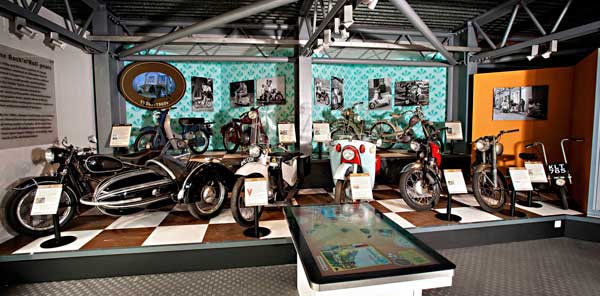
More information about the National Motor Museum is available at: www.beaulieu.co.uk/attractions/national-motor-museum
Travel Information
By Air:
Southampton is about 70 miles from Heathrow International Airport and about 80 miles from Gatwick International Airport.
Southampton International Airport is a few minutes from the Southampton campuses by bus or taxi. There is a full UK domestic service, as well as flights to/from France, Belgium, Holland and Germany.By Rail:
Trains from London, Gatwick Airport and Bournemouth/Weymouth stop at Southampton Central and Southampton Airport Parkway.
Trains from Portsmouth and Bristol/South Wales stop at Southampton Central.
Bus services link the University with railway stations and Southampton airport.By Road:
Southampton is about 80 miles from London on the M3 motorway.Bus Pass:
All registered attendees will recieve a unilink bus pass at registration, which will be valid on Unilink buses in the Soutampton zone for the duration of the conference. Uni link buses connect the University of Southampton Highfield Campus where the conference is being held, the city centre as well as Southampton airport and railway stations. This will allow delegates staying in city centre hotels to reach the conference venue. For more information about the bus service please click here to visit the Unilink website.More information can be found at: www.discoversouthampton.co.uk and: www.southampton.ac.uk
Guest House List
For a list of hotels and guest houses please refer to this link:
Southampton Guest House ListPlease note this List has been compiled for information and inclusion on this list does not constitute a recommendation by the University of a particular establishment.
INTERREG CONFERENCE: GLOBAL CULTURE AND CREATIVITY: FROM DESIGN TO INNOVATION AND ENTERPRISE
The conference is based on collaboration between Ecole Normandie in France and the Faculty of Business and Law at the University of Southampton. The conference will be based at the Winchester School of Art
-
GLOBAL CULTURE AND CREATIVITY: FROM DESIGN TO INNOVATION AND ENTERPRISE?
November 5, 2014 – November 7, 2014Global culture is increasingly understood as not only the spread of ideas, meanings, and values across world space but also as the transmission of creativity or the phenomenon whereby something novel and helpful is created or designed such as innovative notions, inventive artworks, and enterprising solutions to longstanding managerial problems. The concept of global culture arose in the 1990s within the wider dialogue concerning economic, political, and technological globalization. Global culture combines such diverse subjects as: consumption; publishing on the Internet; popular culture; multimedia videogames; international travel; interactive cultural circulation; individualization; and spatially extended cultural relations beyond national borders such as entertainment, design, advertising, and art. Global culture is usually typified by the creative expansion of cultural and material relations, the creation of shared and contested standards and forms of knowledge, individual and collective identities, and rising interconnectedness among different peoples.
EU COST MEETINGS
-
EU-COST Summer School on Nuclear Spin Hyperpolarization Techniques
June 21, 2015 – June 26, 2015This Summer School is organised within the framework of the EU COST Action TD1103 "Hyperpolarization Physics and Methodology in NMR and MRI" (www.eurohyperpol.eu).
The main purpose of the school is to train the young generation of scientists (PhD's and PostDocs) working in the field of magnetic resonance in novel methodologies for nuclear spin hyperpolarisation.
For this purpose the school will discuss several hyperpolarisation techniques:
- Solid-State DNP
- dissolution-DNP
- Overhauser-DNP
- PHIP/SABRE (ParaHydrogen Induced Polarisation)
- CIDNP (Chemically induced DNP)
- QRIP (Quantum Rotor Induced Polarisation)
at 4 different levels: Theory, Simulations, Instrumentation and Applications.
The school is coordinated by Giuseppe Pileio (University of Southampton, UK) and Björn Corzilius (Goethe University Frankfurt, DE);
It boasts a rich list of top class teachers and scientists whose researches have contributed to estabilish the field of nuclear spin hyperpolarisation:
- Shimon Vega (Weizmann Institite, IL)
- Bob Griffin (MIT, Cambridge, US)
- Malcolm H. Levitt (University of Southampton, UK)
- Kevin Brindle (University of Cambridge, UK)
- Walter Kockenberger (University of Nottingham, UK)
- Ilya Kuprov (University of Southampton, UK)
- Jan-Henrik Arderkjaeren-Larsen (DTU Copenhagen, DK)
- Sami Jannin (EPFL, CH)
- Marina Bennati (MPI, Göttingen, DE)
- Marco Tessari (IMM, Nijmegen, NL)
The school is open to PhD's, PostDocs and early career scientists but we can allow only a total number of 30 participants. Places will be assigned on a first come first served base so please do not wait the last minute to register! People from countries enrolled in the COST Action are entitled to a fixed reimbursement of 500€ (for a list of enrolled countries see here).
Every participants is due to submit an abstract for a poster to be carried at the summer school. The submission of a poster abstract is mandatory to get a place at the school.
The meeting is sponsored by:
Student Attendance Support:

Planning:


Gold Sponsorship:

Silver Sponsorship:
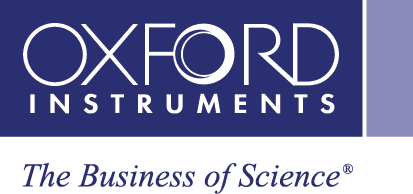
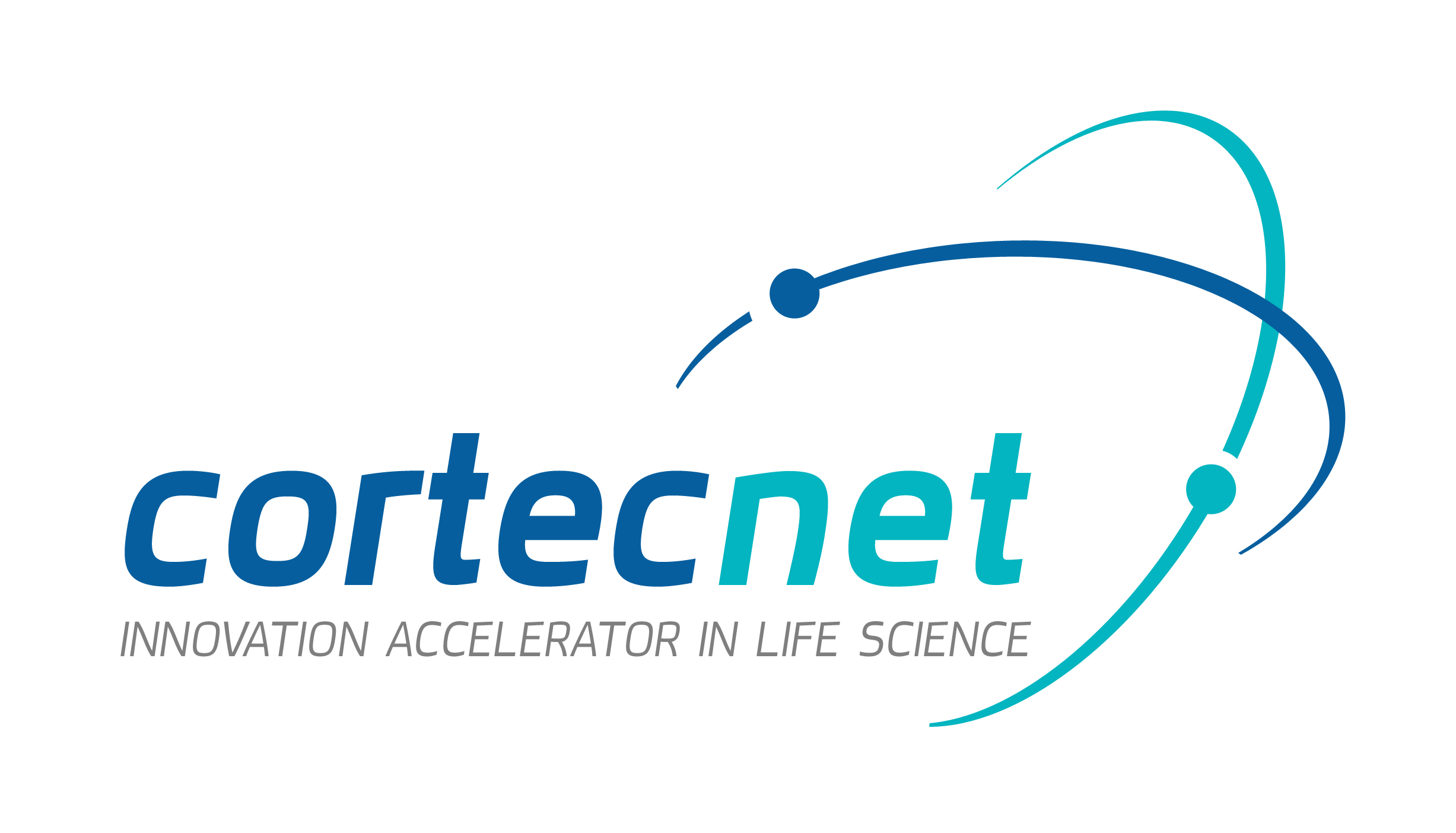
-
COST Meeting on Relaxation and Hyperpolarisation Theory - 2014
May 6, 2014 – May 8, 2014This meeting is organised within the framework of the EU COST Action TD1103 "Hyperpolarization Physics and Methodology in NMR and MRI" (www.eurohyperpol.eu). It is a discussion meeting that joins two COST working groups: "Theory" (WG2) and "Relaxation" (WG3).
The meeting will focus on two specific subjects:
- Long-lived spin states to prolong the lifetime of hypepolarised spin order;
- The role of spin diffusion in hyperpolarisation techniques.
For each subject there will be two introductory talks of didactic character given by well-known specialists in the field:
- Malcolm H. Levitt (University of Southampton, UK)
- Sami Jannin (EPFL, CH)
- Lyndon Emsley (ENS Lyon, FR)
- Walter Kockenberger (University of Nottingham, UK)
In addition, other COST participants (notably, young researchers) will contribute with oral presentations of their recent results. Discussion sessions will integrate the meeting and offer the possibility to set a common research framework by identifying the most importantresearch directions the community will focus on.
Exploiting long-lived spin states (LLSs) is a new promising methodology, which is based on using spin order with lifetime exceeding by far the lifetime of longitudinal magnetisation. LLSs can be applied to study slow dynamic processes or to sustain spin hyperpolarization during extended periods of time, to cite a few examples. This latter is a critical issue in many applications of spin hyperpolarization. The meeting will address various aspects of extending the lifetime of spin hyperpolarization and report about current applications of the technique in NMR/MRI experiments.
Spin diffusion plays a central role in many hyperpolarization experiments, notably, in solid-state Dynamic Nuclear Polarization (DNP). Full understanding of the physics underlying solid-state DNP inevitably requires deeper insights into electronic and nuclear spin diffusion. These issues will be discussed during the meeting; recent theoretical and experimental advances will be presented and discussed.
N.B.: Participants from countries enrolled in the COST Action are entitled to a reimbursement of up to 500€ and depending on the number of participants. Check if your country is enrolled here.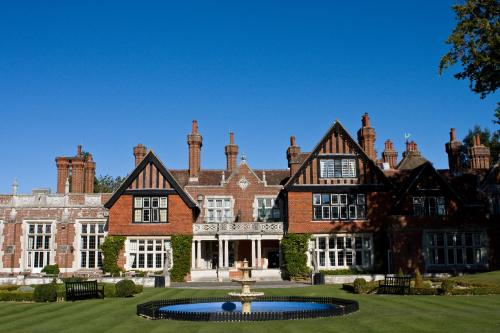
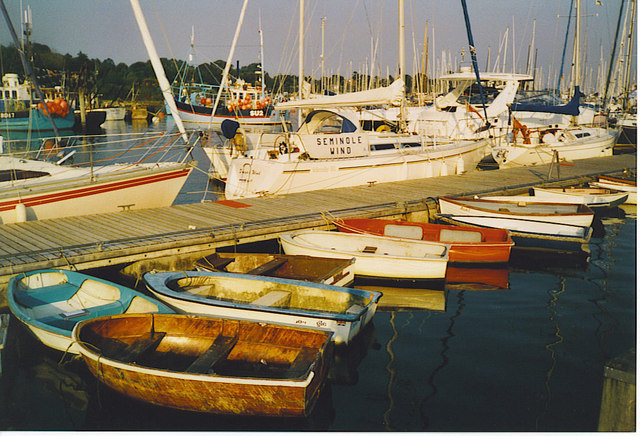
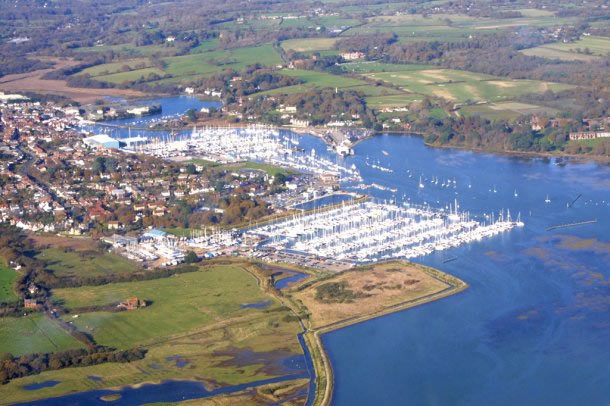



The Art of Compassion
The Association of Medical Humanities annual conference.
The theme of the conference is ‘The Art of Compassion’ which aims to explore and share the extent to which medical humanities can generate understanding and maximise its potential to transform medical practice. It is hoped that this conference will contribute to the current debate around compassion and the development of compassionate practice in healthcare.
Registration for the conference available from 3rd March at http://go.soton.ac.uk/5sg
-
The Art of compassion
July 7, 2014 – July 9, 2014The Association of Medical Humanities annual conference. The theme of the conference is ‘The Art of Compassion’ which aims to explore and share the extent to which medical humanities can generate understanding and maximise its potential to transform medical practice. It is hoped that this conference will contribute to the current debate around compassion and the development of compassionate practice in healthcare.
International Conference on Generalized Functions 2014
- Distribution theory, hyperfunctions, algebras of generalized functions, integral transforms,
- Linear and nonlinear differential equations, solvabilty, regularity, stochastic equations,
- Pseudodifferential operators and microlocal analysis,
- Geometric problems and nonlinear differential geometry,
- Applications in mathematical modelling and mathematical physics, and applied analysis
- Harmonic analysis, modulation spaces, time-frequency analysis.
-
International Conference on Generalized Functions
September 8, 2014 – September 12, 2014Brief Description
This conference continues a long-standing tradition of international conferences on generalized functions gathering researchers working in all branches of "generalized functions". As seen with the most recent conferences held in Novi Sad (Serbia, 2004), Bedlewo (Poland, 2007), Vienna (2009) and Martinique (2011) the spectrum of interrelations with other fields of mathematics and applications has been steadily increasing. Following this trend GF2014 aims at a broad coverage of research on generalized functions and applications of generalized functions. See Aims and Scope for more details.Plenary Speakers
The preliminary list of plenary speakers includes:- Soon-Yeong Chung (Sogang Univeristy, Seoul)
- Pedro Catuogno (University Estadual de Campinas)
- Sandro Coriasco (University of Turin)
- Claudia Garetto (Loughborough University)
- James Grant (University of Surrey)
- Eduard Nigsch (University of Vienna)
- Michael Oberguggenberger (University of Innsbruck)
- Stevan Pilipovic (University of Novi Saad)
- Luigi Rodino (University of Turin)
- Michael Ruzhansky (Imperial College, London)
- Roland Steinbauer (University of Vienna)
- Joachim Toft (Växjö University)
- Jasson Vindas (University of Ghent)
Abstracts
The Book of Abstracts including the programme and daily schedule is available for download here: Abstracts
Programme
The programme for the week is availbale for download here: Programme
Or follow the link to the conference webpage which gives the the programme
Registration
Registration is now open. The conference fee is 250 GBP (300 EUR). It covers lunch, coffee breaks, conference material, excursion and conference dinner. The fee is payable directly upon registration on the conference website via credit card. Please note that this way of paying is strongly preferred, and it also causes no additional bank fees for you. If for some reason it is not possible for you to pay by credit card please contact the organising committee.
EARLI – European Association for Research on Learning and Instruction
Marrying rigour and relevance: towards effective education for all
The relationship between research and practice has long been a key concern in education and the social sciences more generally. For the field of educational effectiveness, this issue is at the forefront even more, given that the very intention of EER has from its origins been not just to identify the characteristics of effective education, but to influence policy and practice for greater effectiveness. At the same time, the field has always striven to put our knowledge of educational processes onto a sound scientific footing by employing rigorous research designs and analytical methods, which have increased in sophistication over the years.
In contrast to the views of some critics of the field, we feel that this methodological rigour is essential to provide practitioners and policymakers with information that is sufficiently robust to be used as a basis for decision making, and the theme of this conference reflects this belief.
It is therefore the aim of this conference to explore ways in which we can continue to produce research that is both rigorous and relevant, and also look at ways in which complex methods, designs and findings can be communicated and co-constructed with practitioners and policymakers. As such we aim to build on traditional strengths of our field, while being aware of the challenges we face.
The second part of the conference title likewise reflects both longstanding concerns in the field and recent developments. The principle of equity and positive educational outcomes for all students, whatever their background, has always motivated researchers in our field, but has if anything become even more central as many societies are confronted with growing inequality and complexity, and we hope to stimulate discussion on ways we can contribute to improving quality education for all students.
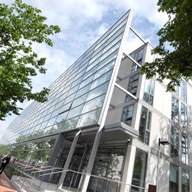
The conference should therefore be relevant to researchers, practitioners and students with an interest in educational effectiveness.
We look forward to welcoming you at Southampton!
-
Fourth Meeting of the EARLI SIG Educational Effectiveness 27-29 August 2014
August 27, 2014 – August 29, 2014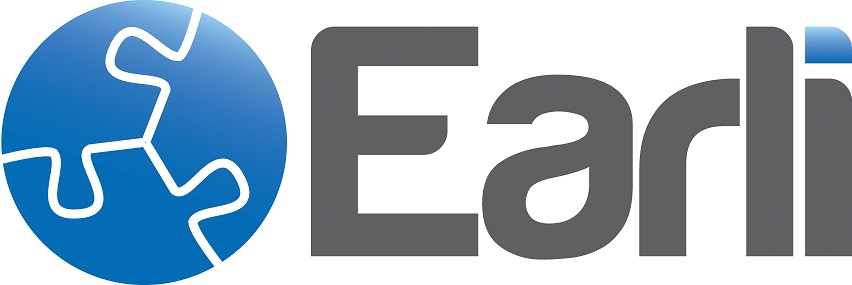

Marrying rigour and relevance: towards effective education for all
The relationship between research and practice has long been a key concern in education and the social sciences more generally. For the field of educational effectiveness, this issue is at the forefront even more, given that the very intention of EER has from its origins been not just to identify the characteristics of effective education, but to influence policy and practice for greater effectiveness. At the same time, the field has always striven to put our knowledge of educational processes onto a sound scientific footing by employing rigorous research designs and analytical methods, which have increased in sophistication over the years.
In contrast to the views of some critics of the field, we feel that this methodological rigour is essential to provide practitioners and policymakers with information that is sufficiently robust to be used as a basis for decision making, and the theme of this conference reflects this belief.
It is therefore the aim of this conference to explore ways in which we can continue to produce research that is both rigorous and relevant, and also look at ways in which complex methods, designs and findings can be communicated and co-constructed with practitioners and policymakers. As such we aim to build on traditional strengths of our field, while being aware of the challenges we face.
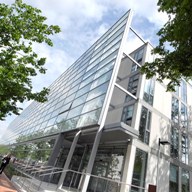
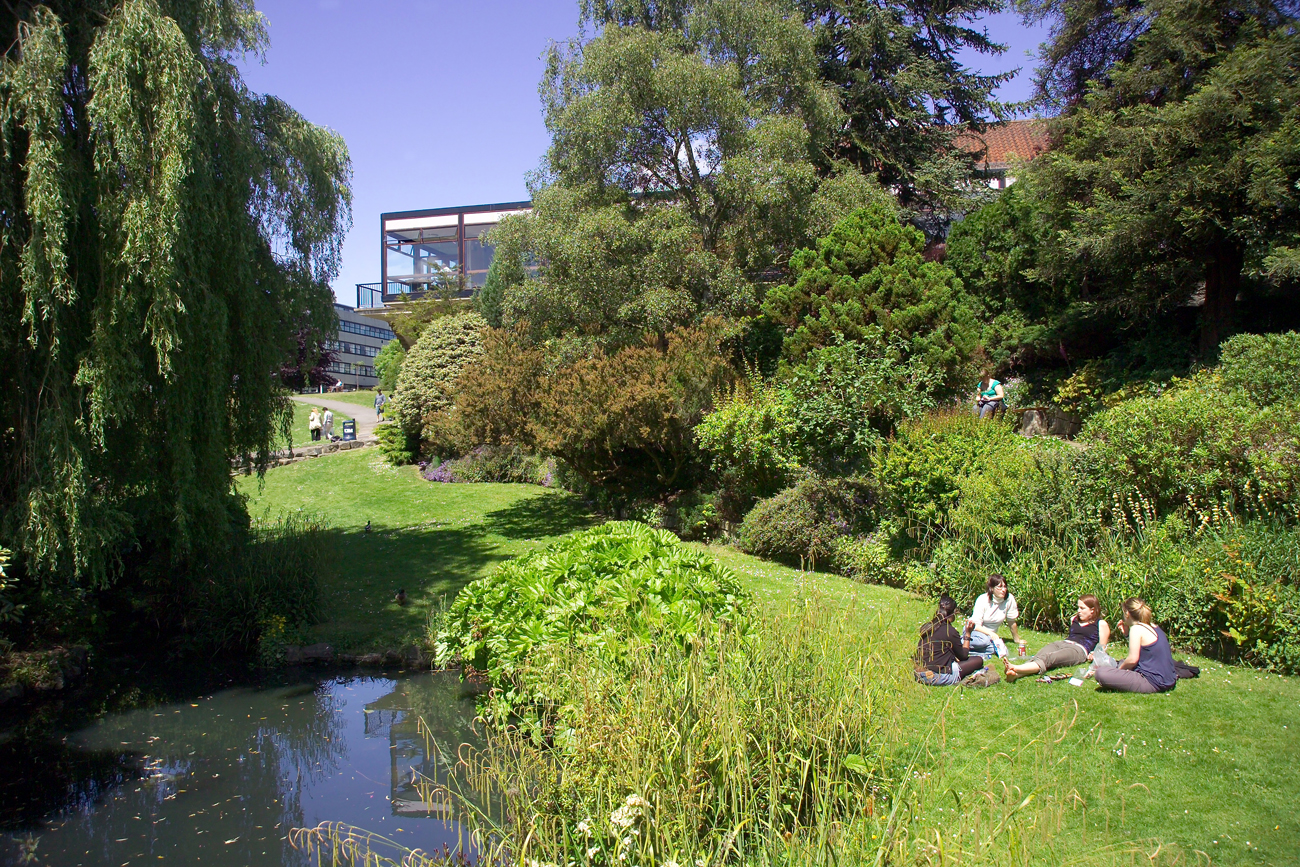
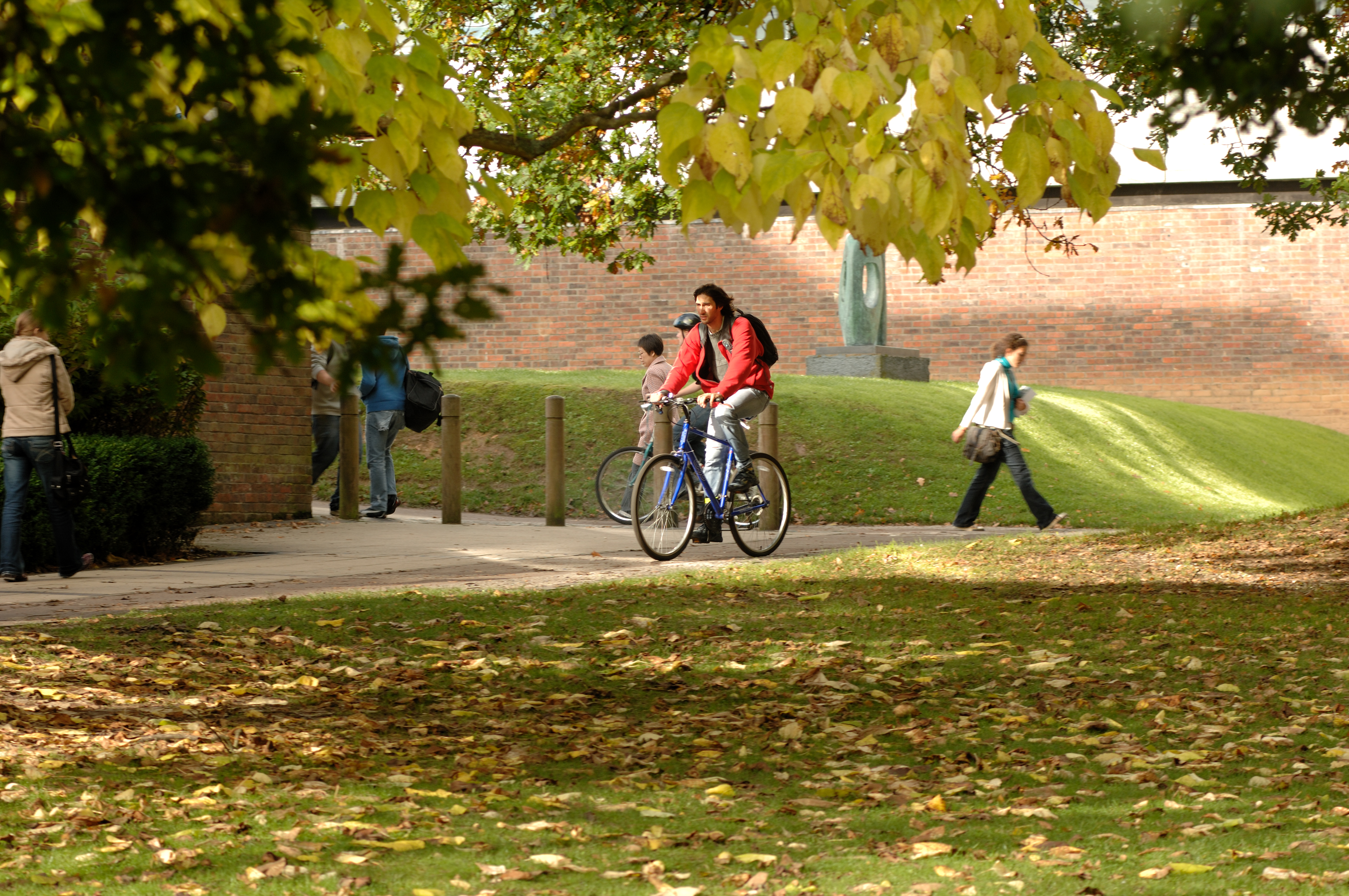
The second part of the conference title likewise reflects both longstanding concerns in the field and recent developments. The principle of equity and positive educational outcomes for all students, whatever their background, has always motivated researchers in our field, but has if anything become even more central as many societies are confronted with growing inequality and complexity, and we hope to stimulate discussion on ways we can contribute to improving quality education for all students.
The conference should therefore be relevant to researchers, practitioners and students with an interest in educational effectiveness.
Four keynote speakers confirmed: ‘Professor Roel Bosker, University of Groningen; Professor Katharina Maag-Merkki, University of Zurich; Professor Pam Sammons, University of Oxford and Professor Sam Stringfield, University of Cincinatti’.
please click on the following link for more information on the JURE SIG 18 pre-conference 2014
We are looking forward to welcoming you in Southampton!
Southampton Workshop on Heat Recovery Systems
Workshop on Heat Recovery Systems
-
Spring 2013 workshop
May 16, 2013 – May 16, 2013This workshop aims to bring together academics, research students and people involved in the heat recovery industry to discuss the technological and research challenges for modern and future heat recovery systems.
Presentations:
The role of dense gas dynamics on ORC turbine performance
Radial expanders for small-scale ORCs
Electric turbo-compounding
System modelling for an efficient 10kWe ORC for heat recovery utilising a turbo-expander
Electrochem 20013
The meeting will cover a wide range of aspects related to electrochemical science and technology which will be covered by eight symposia:
- Fundamental electrochemistry
- Materials and nanomaterials
- Electrochemical engineering and technology, industrial developments
- Corrosion sciences and engineering
- Energy storage: Batteries, redox flow cells, supercapacitors
- Energy conversion, fuel cells, biofuel cells, solar cells
- Applications of electrochemistry in sensors, medicine, biology
The symposia will provide opportunities for sharing and discuss innovative work and networking.
-
Electrochem 2013
September 1, 2013 – September 3, 2013You are warmly invited to the 18th Annual Electrochem 2013 Meeting at the University of Southampton from 1st to 3rd September, 2013.
Southampton hosts a wide variety of arts venues and events and is bursting with culture, both historically and modern-day. There are two major theatres in Southampton – the Mayflower and the Nuffield, both host a wide variety of shows, from drama to comedy, opera to puppetry. The city fosters and celebrates creative and media industries, contemporary and performance arts, arts reflecting the city’s communities and arts in education.
Southampton has played an important part in history from as far back as records were kept. Some of the most important innovations in history were founded here and some of the most interesting characters have played a part in its heritage. For example Henry V marched his soldiers through the centre of Southampton on the way to battle and Jane Austen lived here between 1806 and 1809 and often wrote about it’s beauty.
From pre-school to further and higher education, the city has many options and also provides opportunities for adult learners, apprenticeships and training. Southampton’s aim is to be an international centre of learning and development particularly in the marine sector in which the city is already highly regarded. In particular the University of Southampton is one of the top 10 research-led Universities in the UK.
MCP2013
The 8th International Conference on Multiple Comparison Procedures will be held on July 8 - 11, 2013 at University of Southampton, UK.
The main goal of the conference is to promote research and applications of multiple comparison procedures. The application areas of multiple comparison procedures are a rich and important source of cross-disciplinary statistical research. The conference will provide a forum for technical interactions among industry practitioners, research scientists from subject matter areas and statisticians.
-
MCP2013
July 8, 2013 – July 11, 2013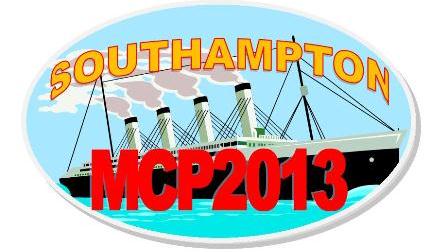 The 8th International Conference on Multiple Comparison Procedures will be held on July 8 - 11, 2013 at University of Southampton, UK.
The 8th International Conference on Multiple Comparison Procedures will be held on July 8 - 11, 2013 at University of Southampton, UK.
The main goal of the conference is to promote research and applications of multiple comparison procedures. The application areas of multiple comparison procedures are a rich and important source of cross-disciplinary statistical research. The conference will provide a forum for technical interactions among industry practitioners, research scientists from subject matter areas and statisticians.For more information on the conference visit this website: http://www.mcp-conference.org/2013/index.php
VeRoLog 2013
The second meeting of the EURO working Group on Vehicle Routing and Logistics Optimization (VeRoLog) will take place in Southampton, UK from July 8 to 10, 2013
-
VeRoLog 2013
July 7, 2013 – July 10, 2013
The second meeting EURO Working Group on Vehicle Routing and Logistics Optimization (VeRoLog) will take place at the University of Southampton, United Kingdom and hosted by CORMSIS, the University's Centre for Operational Research, Management Science and Information Systems. VeRoLog, created in 2011, is the newest of EURO's Working Groups. Its purpose is to advance the development and application of OR in the field of Vehicle Routing and Logistics. The first meeting of VeRoLog was held in Bologna in July 2012. The conference series aims at being a regular meeting of the large community of researchers and practitioners interested in Vehicle Routing optimization and its relations with Logistics. The scope of the conferences ranges from high-quality methodological contributions to relevant and real-world applications from industry.
International Conference on the Global Financial Crisis: European Financial Markets and Institutions
We are pleased to announce an international conference in banking and finance that will be held in the beautiful city of Southampton, UK on 25-26 April, 2013. The international conference is organised by the School of Management, University of Southampton, in association with the Journal of International Money and Finance and the Money Macro and Finance Research Group. Professor James Lothian of Fordham Universit, USA will deliver the keynote speech. Professor Charles Goodhart of London Business School will present a lunch time seminar.
To view photos from the conference please visit our Management School Facebook page
-
International Conference on the Global Financial Crisis
April 25, 2013 – April 26, 2013
We are pleased to announce an international conference in banking and finance that will be held in the beautiful city of Southampton, UK on 25-26 April, 2013. The international conference is organised by the School of Management, University of Southampton, in association with the Journal of International Money and Financea and the Money Macro and Finance Research Group. Professor James Lothian of Fordham University, USA will deliver the keynote speech. Professor Charles Goodhart of London Business School will present a lunch time seminar.
As the chairs of the conference, it is our great pleasure to cordially invite you to submit extended abstracts (max 500 word) or papers in all areas of banking and finance that investigate the effects of the Global Financial Crisis on European financial markets and institutions. Both theoretical and empirical papers are encouraged in areas which include, but are not limited to:
Asset pricing, banking, capital markets, corporate governance, corporate finance, efficiency and productivity analysis, financial regulation, foreign exchange markets, derivatives, global markets for risk , market microstructure, corporate investment decision, risk management, financial management, securitization, corporate control and organization, financial intermediation, forecasting, econometric analysis, risk management, systemic risk, liquidity risk, mathematical and computational modelling.
Proposals for special sessions are also welcome and should be sent directly to the Conference Chairs.
To register your place and make payment visit our online store
SPECIAL ISSUE in JOURNAL OF INTERNATIONAL MONEY AND FINANCE:
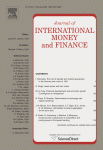
A special issue of the Journal of International Money and Finance (JIMF) on the conference theme will be published under the Guest Editorship of Professor Taufiq Choudhry, Dr Gerhard Kling and Dr Ranadeva Jayasekera. Papers submitted for this special issue will undergo the journal’s normal review process but the journal’s usual submission fee will not be required. Authors whose papers are accepted for presentation at the conference are encouraged to submit their papers to the JIMF special issue. Additional details for the submission procedure will be provided in due course.
We look forward to meeting you in Southampton, UK at the conference with an intellectually stimulating academic and social programme!
With our very best wishes,
Conference Chairs/Conference Committee:
Prof Taufiq Choudhry, University of Southampton
Dr Gerhard Kling, University of Southampton
Dr Ranadeva Jayasekera, University of SouthamptonWe are very grateful to our sponsors, the Journal of International Money and Finance, the Money Macro and Finance Research Group, the Bank of England, and the School of Management, University of Southampton.

The Money macro and finance research group
To view the Conference Programme and Book of Abstracts please click here
To view the final conference delegate list please click here
To view photos from the conference please visit our Management School Facebook page
Eleventh International Conference on Recent Advances in Structural Dynamics
For full information on RASD 2013 please visit the official pages by clicking here.
The Institute of Sound and Vibration Research (ISVR) is pleased to announce that the Eleventh International Conference on Recent Advances in Structural Dynamics will be held at the University of Pisa, Italy, on 1-3 July 2013. The first conference of the series was held in 1980.
This conference is devoted to theoretical, numerical and experimental developments in structural dynamics and their application to all types of structures and dynamical systems.
The conference will reflect the state-of-the-art of structural dynamics and dynamical systems in science and engineering practice and is an opportunity to exchange scientific, technical and experimental ideas. There will be five keynote lectures and parallel technical sessions. All submitted papers will be peer reviewed
-
RASD 2013 11th International Conference on Recent Advances in Structural Dynamics 1st – 3rd July 2013
July 1, 2013 – July 3, 2013The Institute of Sound and Vibration Research (ISVR) is pleased to announce that the Eleventh International Conference on Recent Advances in Structural Dynamics will be held at the University of Pisa, Italy, on 1-3 July 2013. The first conference of the series was held in 1980.
This conference is devoted to theoretical, numerical and experimental developments in structural dynamics and their application to all types of structures and dynamical systems.The conference will reflect the state-of-the-art of structural dynamics and dynamical systems in science and engineering practice and is an opportunity to exchange scientific, technical and experimental ideas. There will be five keynote lectures and parallel technical sessions. All submitted papers will be peer reviewed.
School of Management PhD Conference
The University of Southampton’s School of Management is delighted to annouce details of the Seventh Annual PhD Conference for 2011.This is an opportunity not to be missed to meet other School of Management PhD students, Master students and Research staff members in a friendly environment and to gain awareness about each other’s research areas.
-
School of Management PhD Conference 2011
May 11, 2011 – May 11, 2011The University of Southampton’s School of Management is delighted to annouce details of the Seventh Annual PhD Conference 2011. This is an opportunity not to be missed to meet other School of Management PhD students, Master students and Research staff members in a friendly environment and to gain awareness about each other’s research areas.
American Association of Stratigraphic Palynologists
This year’s AASP Annual Meeting will be held at the National Oceanography Centre, University of Southampton, England, and will be a joint meeting with The Palynology Group of The Micropalaeontological Society. The National Oceanography Centre, a collaboration between the Natural Environment Research Council and the University of Southampton is the largest institution of its kind in Europe, a £50m purpose-built centre which opened in 1995.
The AASP meeting will run consecutively after Dino 9 at the University of Liverpool.
-
AASP Southampton 2011
September 4, 2011 – September 7, 2011This year’s AASP Annual Meeting will be held at the National Oceanography Centre, University of Southampton, England, and will be a joint meeting with The Palynology Group of The Micropalaeontological Society. The National Oceanography Centre, a collaboration between the Natural Environment Research Council and the University of Southampton is the largest institution of its kind in Europe, a £50m purpose-built centre which opened in 1995.
The AASP meeting will run consecutively after Dino 9 at the University of Liverpool.
Computer Applications and Quantitative Methods in Archaeology
The Computer Applications and Quantitative Methods in Archaeology (CAA) 2012 conference will be hosted by the Archaeological Computing Research Group in the Faculty of Humanities at the University of Southampton on 26-30 March 2012
-
CAA 2012
March 26, 2012 – March 29, 2012The Computer Applications and Quantitative Methods in Archaeology (CAA) 2012 conference will be hosted by the Archaeological Computing Research Group in the Faculty of Humanities at the University of Southampton on 26-30 March 2012
Eleventh International Conference on Recent Advances in Structural Dynamics

